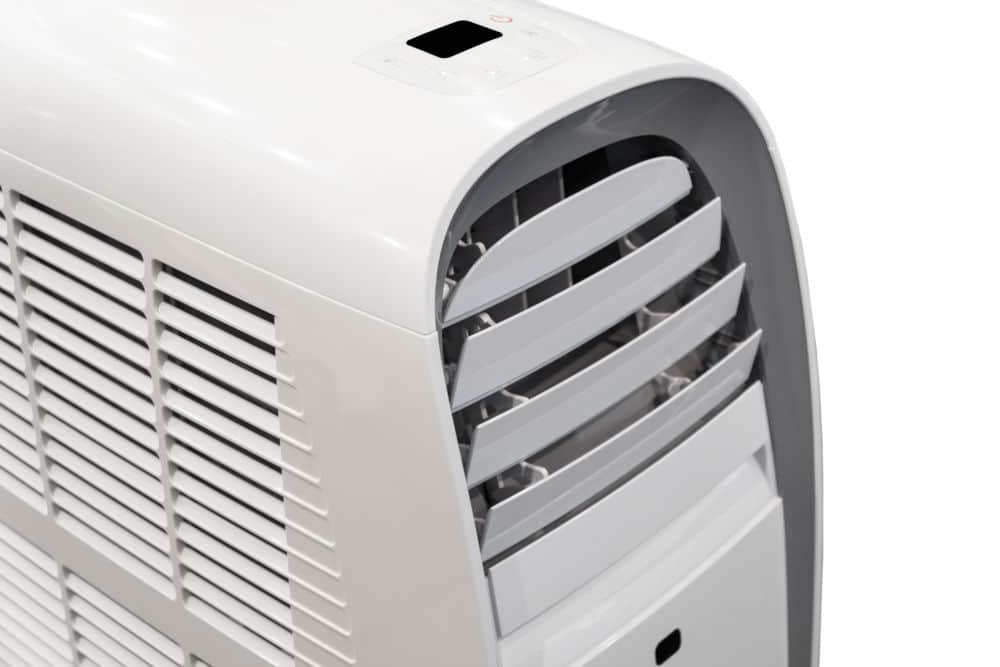With the UK experiencing increasingly warmer summers, finding effective ways to combat the heat and maintain comfortable indoor temperatures is becoming a top priority for many households and businesses. Portable air conditioning units have gained popularity as a convenient and affordable solution for cooling individual rooms or small spaces. In this blog, we will explore the pros and cons of portable air conditioning units, highlight their practical applications, and provide key considerations for those considering purchasing or hiring one of these units.
The pros
-
Flexibility and portability
As the name suggests, portable air conditioning units offer unmatched flexibility. They can be easily moved from one room to another, providing cooling wherever it’s needed the most. This portability is especially beneficial for those who frequently change their living or working spaces.
-
No installation required
Unlike central air conditioning systems, portable units do not require any complicated installation procedures. They are simply plugged into a power outlet and vented through a window or a specially designed vent kit. This makes them a convenient option for both homeowners and renters.
-
Cost-effective
Portable air conditioning units are generally more affordable than installing a central air conditioning system. They offer a budget-friendly cooling solution for those who don’t want to make a substantial upfront investment.
-
Energy efficiency
Modern portable air conditioning units come equipped with energy-saving features, such as programmable timers and adjustable thermostat settings. This allows users to optimise energy usage and reduce utility bills by cooling only the spaces that are being used.
The cons
-
Limited cooling capacity
Portable units are typically designed to cool small to medium-sized spaces. If you have a larger area or multiple rooms that require cooling, you may need to invest in multiple units or consider alternative cooling options.
-
Noise levels
Some portable air conditioning units can generate noise during operation, which may be bothersome for light sleepers or those requiring a quiet work environment. It’s important to consider the noise output of the unit and opt for quieter models if noise is a concern.
-
Ventilation requirements
Portable air conditioning units need proper ventilation to exhaust hot air. This usually involves venting the unit through a window or using a vent kit. It’s crucial to ensure that suitable ventilation options are available in the desired installation location.
Some ideal uses for portable air conditioning
-
Bedrooms and living spaces
Portable air conditioning units are ideal for cooling bedrooms and living rooms, where individuals spend most of their time. They provide personalised comfort and can help improve sleep quality during hot summer nights.
-
Home offices and small businesses
Portable units offer targeted cooling for home offices and small businesses, ensuring a comfortable working environment for increased productivity.
-
Rental properties
Portable air conditioning units are an excellent choice for renters who don’t have the option of installing a permanent cooling system. They can easily be moved when changing properties.
Key considerations before buying or hiring
-
Cooling capacity
Assess the size of the space you intend to cool and choose a unit with an appropriate cooling capacity. Oversized or undersized units may lead to inefficient cooling and higher energy consumption.
-
Energy efficiency
Look for units with high energy efficiency ratings, such as those with an A or A+ energy label. This will help reduce operating costs and minimise environmental impact.
-
Noise levels
Consider the noise output of the unit and choose a model that suits your noise tolerance levels or offers a sleep mode for quieter operation during nighttime.
-
Ventilation options
Ensure that the installation area has suitable ventilation options for venting the hot air generated by the unit. A window or a vent kit compatible with your chosen unit will be necessary.
Portable air conditioning units offer numerous advantages, making them worthwhile investments for UK households and businesses seeking localised cooling solutions. Their flexibility, ease of installation, and cost-effectiveness make them an appealing choice. However, it’s essential to consider factors such as cooling capacity, energy efficiency, noise levels, and ventilation requirements before making a purchase or hiring decision. If you’d like expert assistance, speak to our team on 02083331191.



